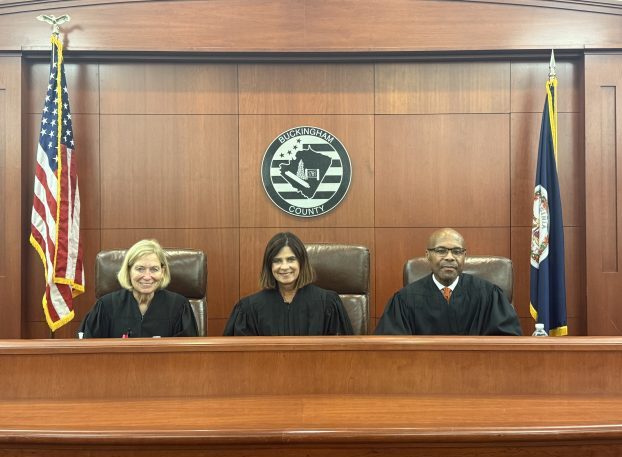Judge denies Smyth’s motion
Published 11:35 am Thursday, September 29, 2016
A circuit court judge has denied a motion craving oyer by Crossroads Community Services Board Chairman Sidney Smyth. A motion craving oyer is a request to a party to place documents mentioned in pleadings into the court record.
Judge Designate Joseph M. Teefey Jr. denied Smyth’s request, stating in an order “the Court does not accept the defendant’s invitation to expand the common law allowance of this defensive pleading into claims sounding in tort.”
Smyth’s filing is part of an ongoing civil suit initiated earlier this year by four former Crossroads employees: Coordinator of Nursing Services Cynthia Morris, Office Manager Laura Baldwin, Substance Abuse Coordinator and Substance Abuse Director Jonathan Crawford and Director of Long-Term Care Marina Sinyard.
Their lawsuits claim Crossroads Executive Director Dr. Susan Baker terminated them on Jan. 20 as part of what she called a “reduction in force” in retaliation for complaints lodged against the agency.
The former employees are seeking actual damages of $300,000; punitive damages of $500,000 against Baker and Smyth individually, non-economic compensatory damages; back pay; monetary equivalent of the value of their future employment; litigation costs; reinstatement with full seniority status; and demand a jury trial.
Smyth asked the court to order the employees to “produce emails … and incorporate them as exhibits” to the complaint, referring to alleged emails between Smyth and Crawford, in which Smyth allegedly said he did not have the time or desire to micromanage the agency.
“The defendant’s motion seeks to crave oyer over two documents, namely, an email from (Crawford) addressed to defendant Smyth and defendant Smyth’s e-mail responding to Crawford. Defendant Smyth asserts that these documents are necessary to plaintiff’s claim of defamation,” Smyth’s filing stated.
In a joint response filed prior to Teefey’s denial, the former employees argued Smyth “improperly attempts to crave oyer,” claiming the oyer is sought “solely as a vehicle is to rewrite (the) allegations … a straw man to knock down. This is a procedurally impermissible strategy to which Plaintiffs need not consent.”
In his order, Teefey stated the court found while the employees’ defamation count was “sound” and that a review of common law determined craving oyer the way Smyth intended is “notably absent” in Virginia case law in matters like the one involving Crossroads.
According to the lawsuits, Smyth allegedly told Crawford, “If you find that you cannot work within these parameters, then I suggest you and your cronies might want to look elsewhere for employment. On a personal note, I think that you need to know that I find insubordination to be despicable. It is immature and unprofessional. Frankly, if you were my subordinate and I found that you were making end runs behind my back to Board members, I would fire you on the spot … I suggest you either conform, communicate with HER, or move on.”
In his response to Baldwin’s suit, Smyth argued the court should have been unable to “access” the former employee’s defamation claim because the emails in question was not attached to Baldwin’s complaint.
According to the former employees’ suits, the “workforce reduction” had not been planned before they went to the board Oct. 27 and no study in anticipation of a workforce reduction had been conducted. “Employees were provided no notice of a planned reduction-in-force.’”
Sinyard’s suit alleges Baker sought to terminate Morris and Baldwin, along with Sinyard and Crawford, to make the removals “‘look fair.’”





